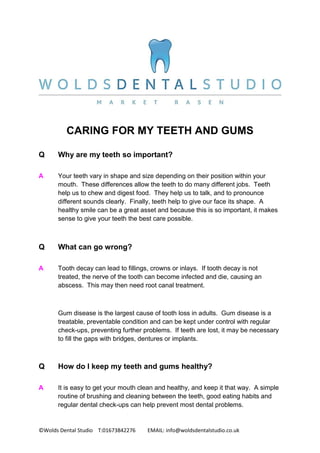The document outlines the importance of dental care, emphasizing the role of teeth in chewing, talking, and maintaining facial structure. It covers potential dental issues such as tooth decay and gum disease, and highlights preventive measures like proper brushing, flossing, and regular dental check-ups. Additionally, it provides guidance on suitable dental products and care routines to maintain oral health.








